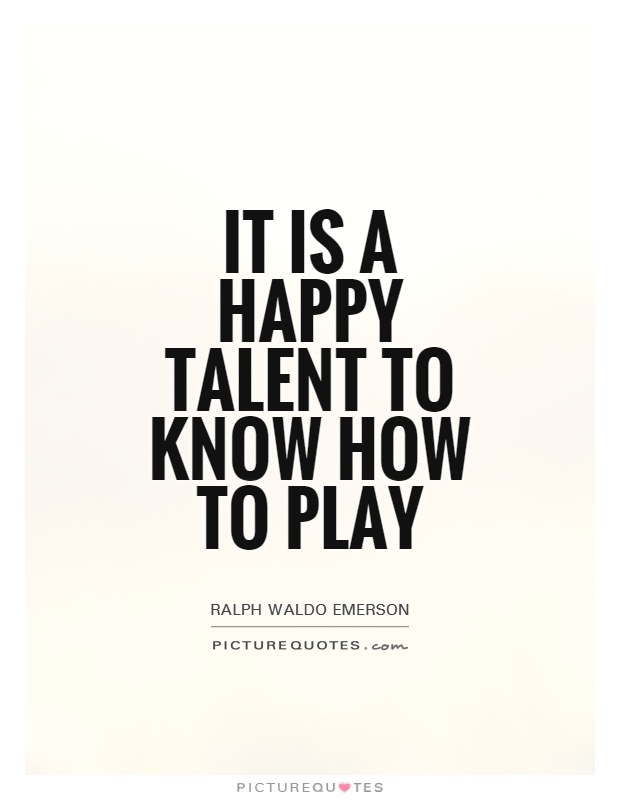It is a happy talent to know how to play

It is a happy talent to know how to play
Ralph Waldo Emerson, a renowned American essayist, lecturer, and poet, once said, "It is a happy talent to know how to play." This simple yet profound statement encapsulates Emerson's belief in the importance of embracing joy and creativity in life. For Emerson, play was not just a frivolous pastime, but a vital aspect of human existence that nurtures the soul and fosters personal growth.Emerson believed that play was essential for maintaining a healthy balance between work and leisure. In a society that often prioritizes productivity and efficiency, he argued that the ability to play was a valuable skill that could help individuals reconnect with their inner child and experience the world with a sense of wonder and curiosity. By engaging in playful activities, whether it be through sports, games, or creative pursuits, Emerson believed that people could tap into their innate sense of joy and spontaneity, leading to a more fulfilling and meaningful life.
Furthermore, Emerson saw play as a form of self-expression and self-discovery. Through play, individuals have the opportunity to explore their interests, talents, and passions in a lighthearted and non-judgmental way. By allowing themselves to be playful and imaginative, people can unlock their creative potential and uncover hidden talents that they may not have known existed. In this sense, play becomes a powerful tool for personal growth and self-realization.
Emerson also believed that play had the power to foster social connections and strengthen relationships. By engaging in playful activities with others, people can build bonds of friendship and camaraderie that transcend barriers of age, gender, and background. Play allows individuals to let down their guard, connect on a deeper level, and experience moments of joy and laughter together. In a world that can often feel divided and disconnected, Emerson saw play as a unifying force that brings people together in a spirit of shared humanity.












 Friendship Quotes
Friendship Quotes Love Quotes
Love Quotes Life Quotes
Life Quotes Funny Quotes
Funny Quotes Motivational Quotes
Motivational Quotes Inspirational Quotes
Inspirational Quotes